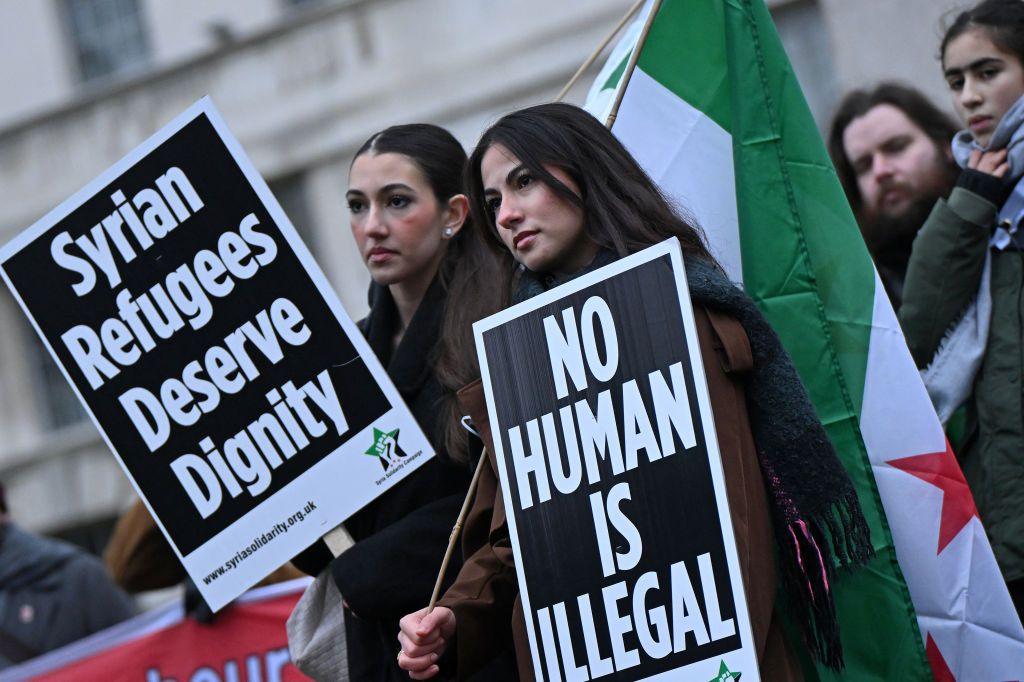The United Kingdom is set to resume processing asylum claims from Syrian nationals, a process that was suspended over seven months ago following the change in power in Syria.
Asylum Minister Dame Angela Eagle stated that the Home Office had “worked to lift the pause as soon as there was sufficient information to make accurate and well-evidenced determinations” regarding these claims.
The government has released updated guidelines to aid officials in evaluating Syrian asylum applications.
Dame Angela indicated that claims can now be processed, and returns to Syria carried out in accordance with the updated guidance.
The UK initially halted decisions on asylum and permanent residency applications from Syrian nationals in December, after President Bashar al-Assad’s government was overthrown by a rebel offensive led by Hayat Tahrir al-Sham (HTS), an Islamist militant group, following a protracted civil war.
In a formal statement, Dame Angela explained that the pause “was a necessary step while there was no stable, objective information available to make robust assessments of risk on return to Syria”.
However, the suspension left over 7,000 Syrians awaiting decisions on their asylum claims in a state of uncertainty.
The majority of these individuals reside in government-funded accommodations, such as hotels.
The pause also affected Syrians who had already been granted refugee status, initially allowing them to remain in the UK for five years before applying for permanent settlement.
Advocates argue that this temporary status complicates individuals’ ability to secure employment or housing.
Enver Solomon, Chief Executive of the Refugee Council, welcomed the resumption of processing, stating: “We know the pause in decision making had left Syrian people trapped in further limbo, unable to work, move on with their lives and fearing for their future.”
“However, the situation in Syria continues to be unstable, and we urge the government to ensure that every asylum application is assessed on a case-by-case basis, ensuring the safety and protection of Syrians who would face extreme risk if they are returned.”
Figures associated with HTS – which is designated a terrorist group by the UK – currently govern the country, with HTS leader Ahmad al-Sharaa appointed as Syria’s interim president earlier this year.
Under the United Nations Refugee Convention, individuals must demonstrate a “well-founded fear of persecution” to be granted asylum and refugee status.
The Home Office’s updated guidance on Syria notes that a “breakdown in law and order or uncertain security situations do not in themselves give rise to a well-founded fear of persecution”.
“There are not substantial grounds for believing there is a real risk of serious harm in Syria because of a serious and individual threat to a civilian’s life or person by reason of indiscriminate violence in a situation of international or internal armed conflict,” it adds.
“All cases must be considered on their individual facts, with the onus on the person to demonstrate they face persecution or serious harm.”
Ministers have previously suggested that the majority of Syrians who arrived in the UK before the change in power were fleeing the previous government, and some may now wish to return.
Regarding returns, the guidance indicates that, following the change in government, opponents of the former Assad regime are “unlikely to be at risk upon return to Syria solely on that basis”.
Addressing the situation for religious minorities, the guidance states that Kurds, Christians, Druze, and Shia Muslims “are unlikely to face a real risk of persecution or serious harm from the state,” and “the onus is on the person to demonstrate otherwise”.
However, it adds that Kurds in areas under the de facto control of the Syrian National Army – a coalition of Turkish-backed rebel groups – “are likely to face a real risk of persecution or serious harm” based on their ethnicity or perceived political opinion.
It also notes that while the new government has sought to reassure members of the Alawite minority that they will not be subject to violent reprisals, Alawites “are likely to face a real risk of persecution or serious harm from the state due to their religion and/or an imputed political opinion”.
Many of the former Assad regime’s political and military elite belonged to the Alawite sect.
The guidance highlights that in March, members of the Alawite minority were subjected to a series of attacks resulting in an estimated 800 deaths, with HTS-affiliated groups reportedly involved.
Earlier this month, Foreign Secretary David Lammy met with interim president al-Sharaa, marking the first visit to Syria by a UK minister since the uprising that initiated the country’s civil war 14 years ago.
The UK has also been gradually easing sanctions on Syria.
Sign up for our Politics Essential newsletter to stay informed on the latest developments in Westminster and beyond.
The Syrian interior ministry sends forces to intervene in the fighting in the city of Suweida and surrounding area.
Research finds that almost all young people struggled with the process and some found it traumatising.
The PM says the “one in, one out” deal with France would prove trying to get to the UK via the Channel would be “in vain”.
Sir Keir Starmer has promised to “smash the gangs” which smuggle people across the English Channel.
Details aside, the agreement is likely to encounter legal, political and practical obstacles.

